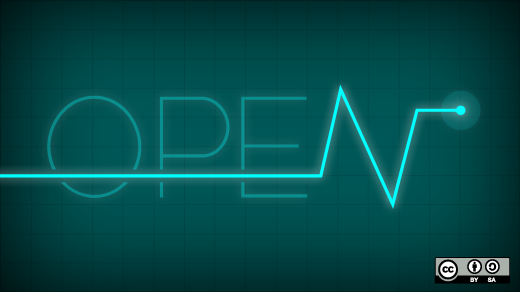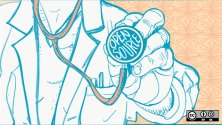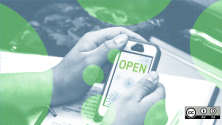Companies like Google, Facebook, and Amazon are collecting enormous amounts of information all day, every day. They use powerful supercomputers to analyze this data. Many people use this to better market products to consumers, for instance.
But, how can big data do more? We see companies and inventors coming out with ideas for improving healthcare, for one, by tracking human biometrics. I think we can take it to the next level and make more wide-scale improvements to our health and our lives.
After a long struggle with addiction, I've realized a dream of mine is to use the health data and analysis of the masses to help solve problems of the mind and body that afflict millions of people worldwide. Good For You is that initiative.
I believe that many of the world's population understands that if we're "on the grid", a lot of our information is already out there. My call is for people to not only share their personal shopping preferences, but their health preferences too. Globally and locally, we can come together to help solve bigger, more important problems than that of capitalism and consumerism.
I believe millions would opt-in to a project like this. Would you? I get excited at the prospect of making life better for both myself and future generations by simply making a record of the things I'm eating and doing everyday. The personal benefit is huge. The group benefit is even bigger.
For a program like this to operate successfully, the entire process would need to be open: collaboration and transparency. By keeping every element of the system open, we could perform these same analytical methods on every aspect of the process itself, promoting rapid evolution and agility. A strong, volunteer-driven effort could do tremendous things and overtime, grow this program into a strong community of contributors.
Components needed to succeed:
- open source software
- open standards for data collection, documentation, and scientific methods
- open access and research, where all results, experiments, and peer reviewed journals are shared
The program
On the user end, anyone could log into the simple app and journal what they’re doing and how they feel. The information is stored in a personal database that remains in the users’ control.
On the researcher end, scientists could query personal databases without allowing the server access to any personal identification information. Their information would then be used to test any given hypotheses. The test would be performed, and the results would be made publicly available.
Reducing duplication of experiment preparation and execution, the Good For You program would save time and money the world over.
For example
A researcher could design an experiment that queries all men between the ages of 25 and 35, comparing those that smoke against a control group that does not smoke, looking for scale of mood in each group.
Unlike social networking platforms, each query would be completely anonymous, which would likely lead to more willing test subjects. Also, the program could display helpful information to users based on their individual habits when compared to the average user/participant.
With a solid foundation of users, the program could accept and log biometric data, such as heart rate and galvanic skin response, which becomes all the more relevant as wearable computers become the norm.
Get involved
Read more about my thoughts for the implications of an initiative like Good For You. Help us get started on these projects by sending a message via the form at the bottom of this page:
- Android app development
- iOS app development
- Server side programming for data collection and analysis
- Community recommendations from researchers, scientists, doctors, nurses, personal trainers, dieticians, etc.
- Beta testing and bug reporting






9 Comments